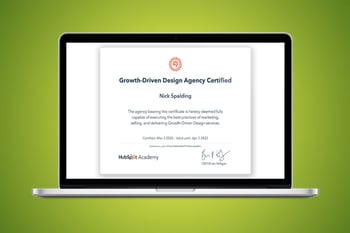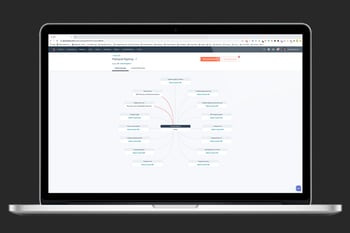I don't need my website to help me grow my business....

Small business owners often underestimate the importance of having a website in their growth plans. Many rely solely on word-of-mouth organic growth, but just imagine the potential they could unlock if they embraced the power of a website.
 Unfortunately 'Word of Mouth' only grows a business so far, this is typical for small entrepreneur type businesses or 'lifestyle' businesses but rarely for businesses looking to scale.
Unfortunately 'Word of Mouth' only grows a business so far, this is typical for small entrepreneur type businesses or 'lifestyle' businesses but rarely for businesses looking to scale.
Now for lots of lifestyle business owners this is totally okay and acceptable but for those looking to really grow, probably not.
And by scale we mean those that want to grow beyond lifestyle businesses to SME's (small to medium enterprises) and beyond.
For this to occur, a website becomes an increasingly pivotal factor in the establishment of a brand, the automation of its lead generation process and subsequently its sales, marketing and customer service processes.
And for those wishing to establish online knowledge-base libraries or distance learning platforms this becomes impossible without an enterprise level website at the core.
Sticking Plaster Approach
Lots of small business owners view their website as a task that needs to be completed once (and ticked off their list). A task they revisit every 3-5 years without much effort in between.
We call this the sticking plaster approach (they have a small graze on their knee so they put the sticking plaster over it and move on to something else).
Rather than viewing their website as an ongoing project, one where a new website represents the launch of a new approach to marketing, so many small business owners view the launch of a new website as the end of a project.
Six months later or more these are also the same business owners that can often be heard saying things like 'my website doesn't do well with Google, or my SEO approach is not working'.
The two go hand in hand.
 Continuous Improvement Approach
Continuous Improvement Approach
We take a different approach with website projects, nowadays.
When we launch a new website for a client, we immediately move to the 'continuous improvement phases' of the project post-launch.
Admittedly in the past this was not always the case (after all budgets dictate whether continuous improvement phases can be adopted, CIA phases are mostly overlooked by small businesses but actually these are the most important phases of the project).
The CIA phases include 'cluster topic content strategies' to post regular blogs, social media, videos, white papers, knowledge-base articles etc to improve a websites authority on a given subject with search engines.
Without adopting a CIA strategy, websites can become stale and out of date very quickly. (You know the ones you see that have not posted any new content since 2015 - we all see them all the time).
How does adopting a CIA strategy with a website help with Google Ranking?
It is the regular, accumulative activity of a CIA strategy, on a continuous ongoing basis, that helps websites to rank organically with search engines. A website requires regular feeding with new content and back links for it to rank well.
Search engines, in particular Google, use complex algorithms to rank websites in their SERP's (search engine results pages), these are the pages that show up in Google when you type in a search term.
More recently, Google (and others) use an algorithm to rank the authority of a website, on any given subject. The algorithm looks at its index of all websites and searches for the most up to date and relevant content on a given subject.
So gone are the days of stuffing a website full of keywords and phrases for a website to rank well.
Search engines now look for a website 'pillar page' on any given subject, such as a service or product page that is supported by lots of 'cluster topic content', typically articles, blogs, news, social, ebook downloads, videos etc with supporting content that links to the pillar page.
A search engine finding a website with up to date pillar pages and up to date cluster topic content supporting the subject will rank the site with authority.
Obviously if a websites cluster topic content is dated three years ago, and yes Google knows when content is published, a website will not rank very well.
 How do I improve my website's SEO authority?
How do I improve my website's SEO authority?
If you want search engines to discover your website and generate more sales prospects and leads, then it's essential to enhance your website's ranking authority on the subjects you want to be found for. While running paid advertising campaigns with Google can boost your website's ranking in the short term, it's not a sustainable solution and is usually reserved for organizations with unlimited budgets.
On the other hand, adopting a CIA (Continuous Improvement Approach) strategy allows your website to gradually and organically climb the ranks over time. It's not a quick fix and won't happen overnight. Instead, it requires consistently creating and sharing valuable content on your website, strategically linking it to your pillar pages.
By investing in a CIA strategy, your website will steadily gain authority and visibility in search engine results, ultimately driving more traffic and potential customers to your business.
There is no 'silver bullet' alternative.
Would you like to find out more?
Take a look at our blog on Hubspot's SEO planning tools here, or if you'd like to find out how to make your website your number one salesperson, take a look at our page on Search Engine Optimisation.
Tags:
SEO
26-Aug-2020 10:30:00

Comments